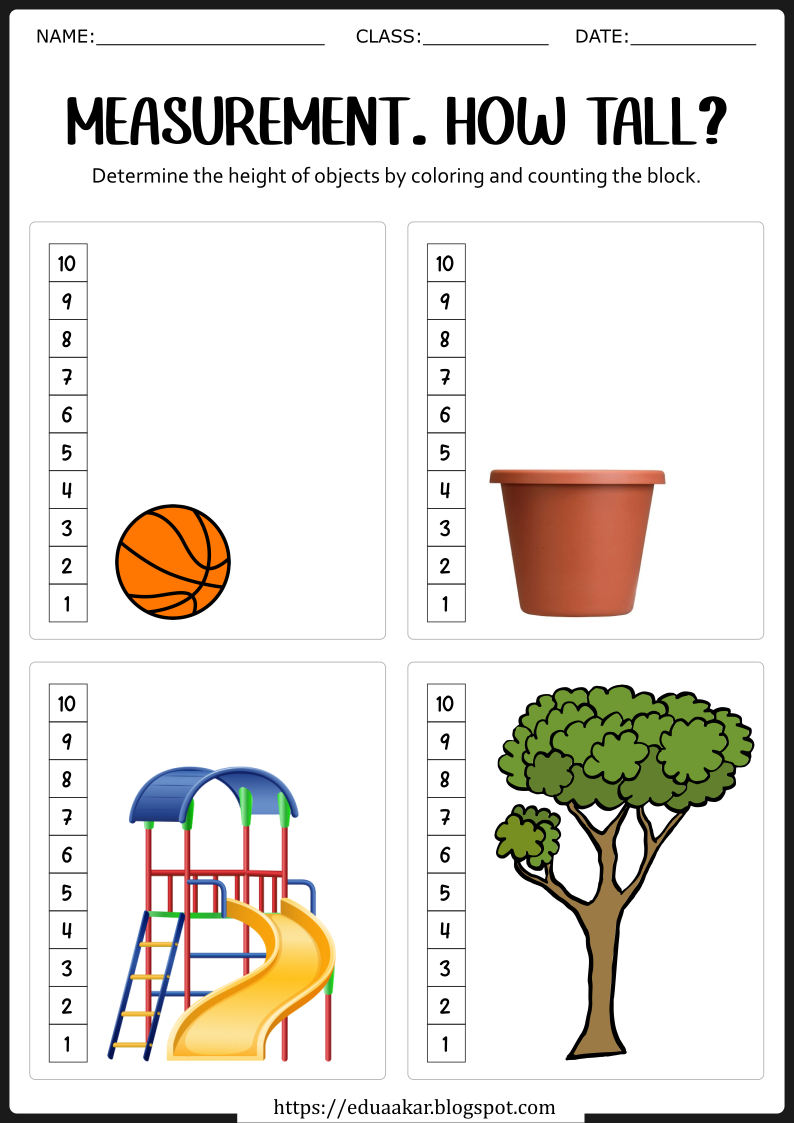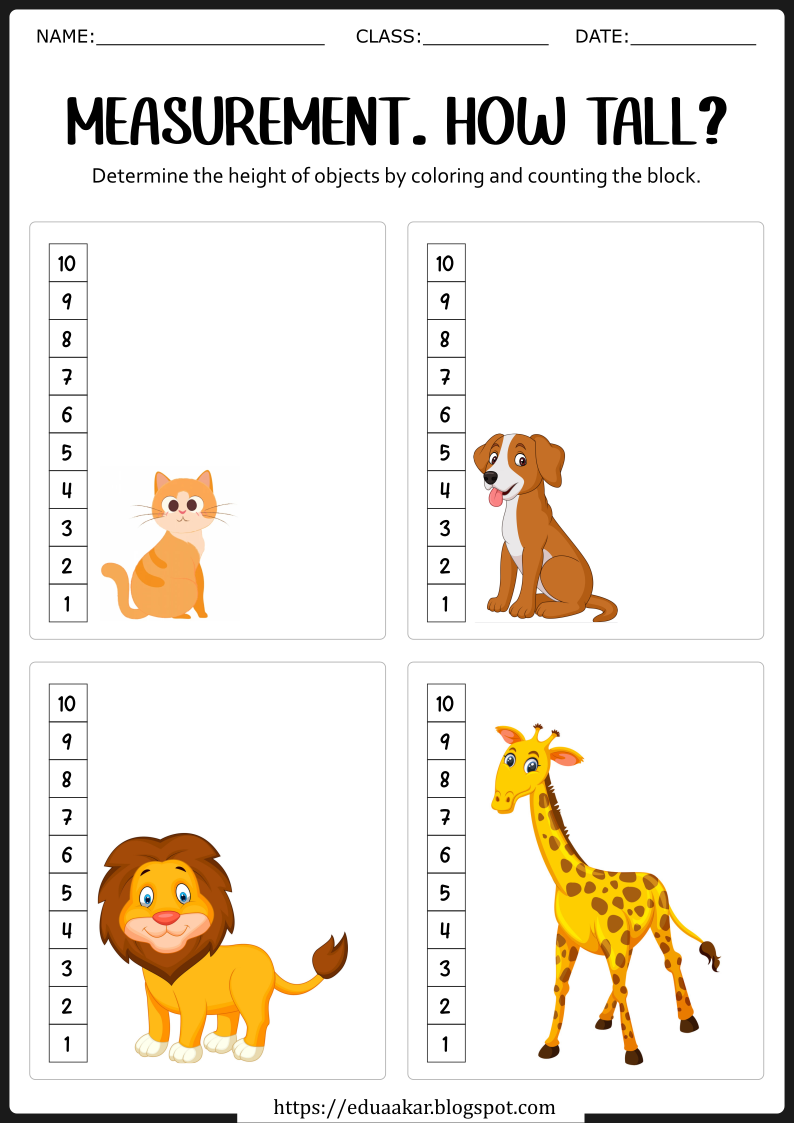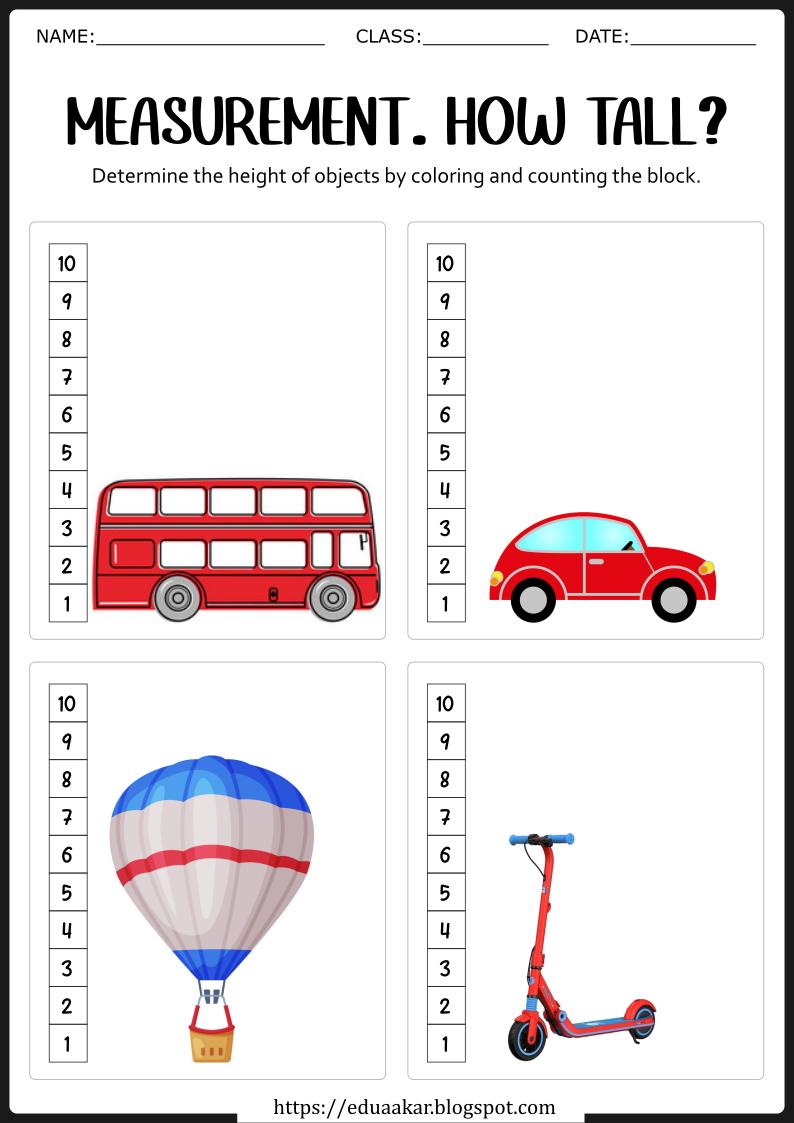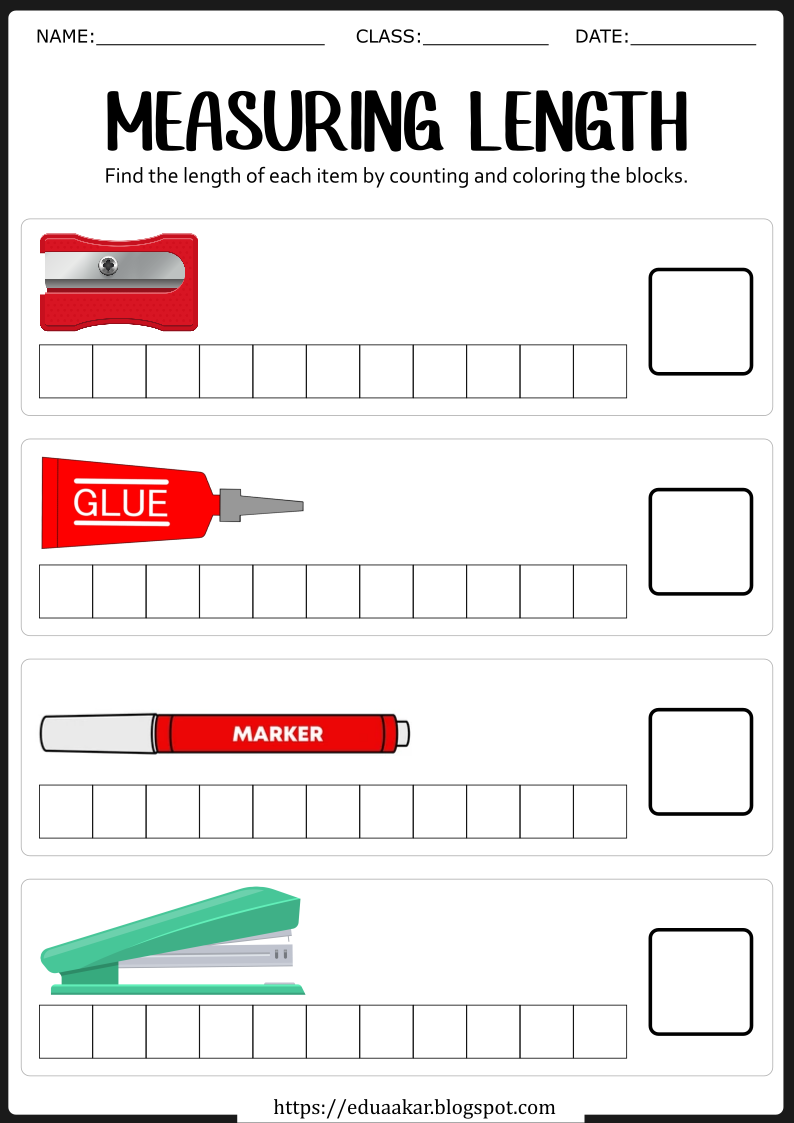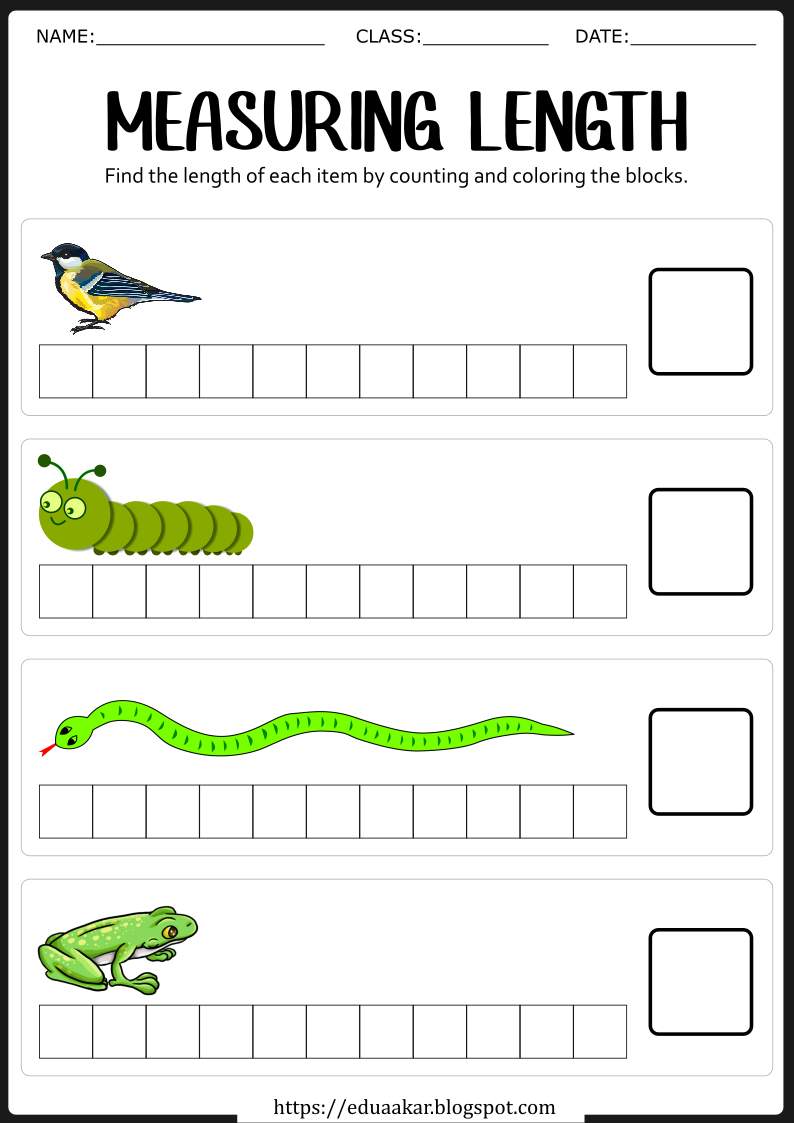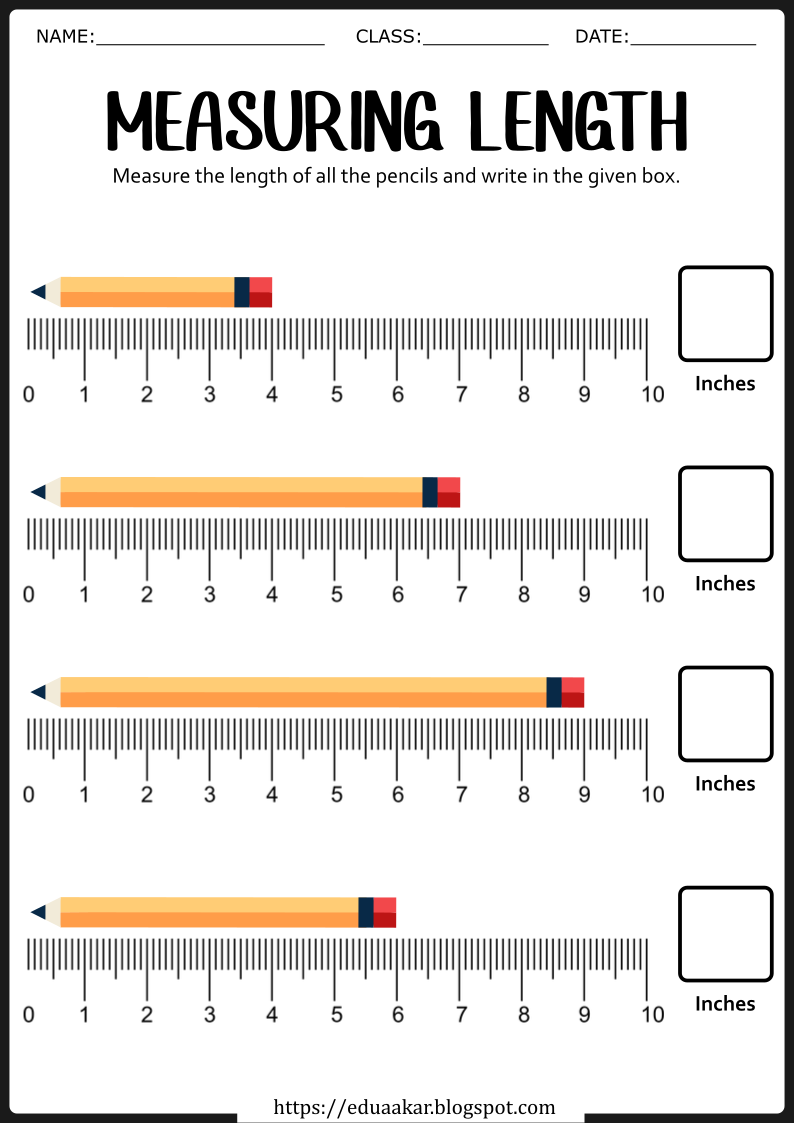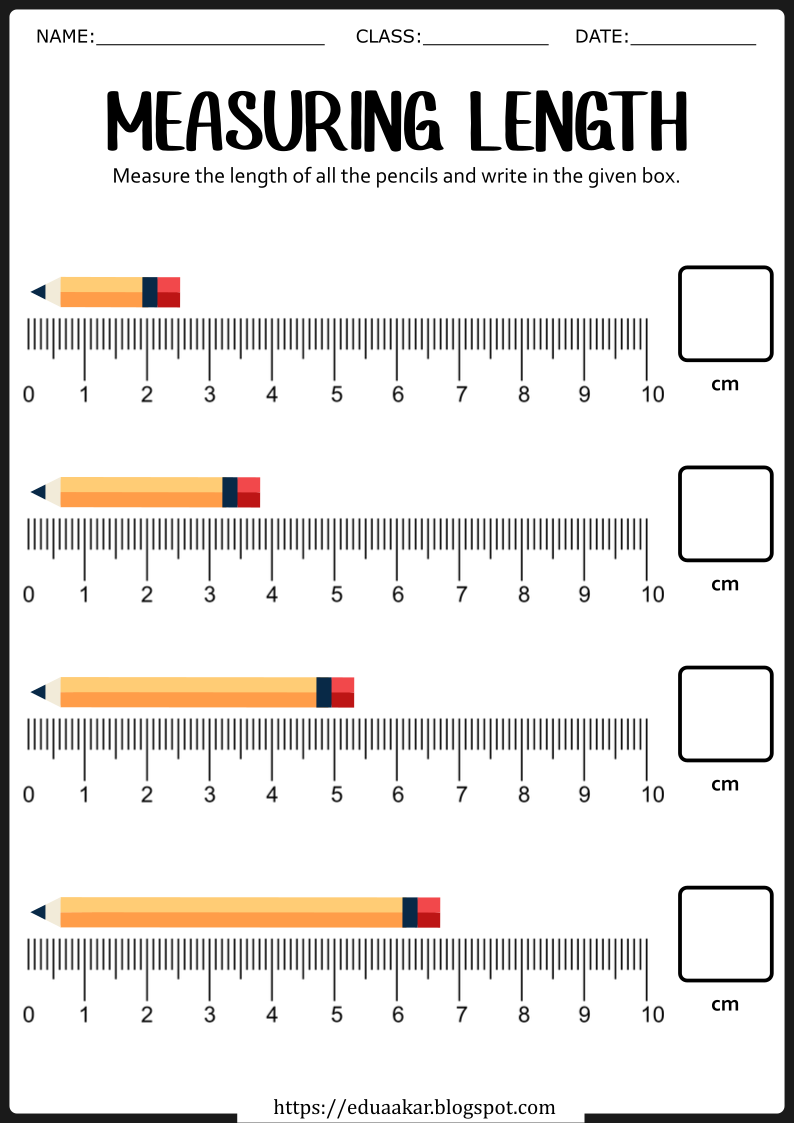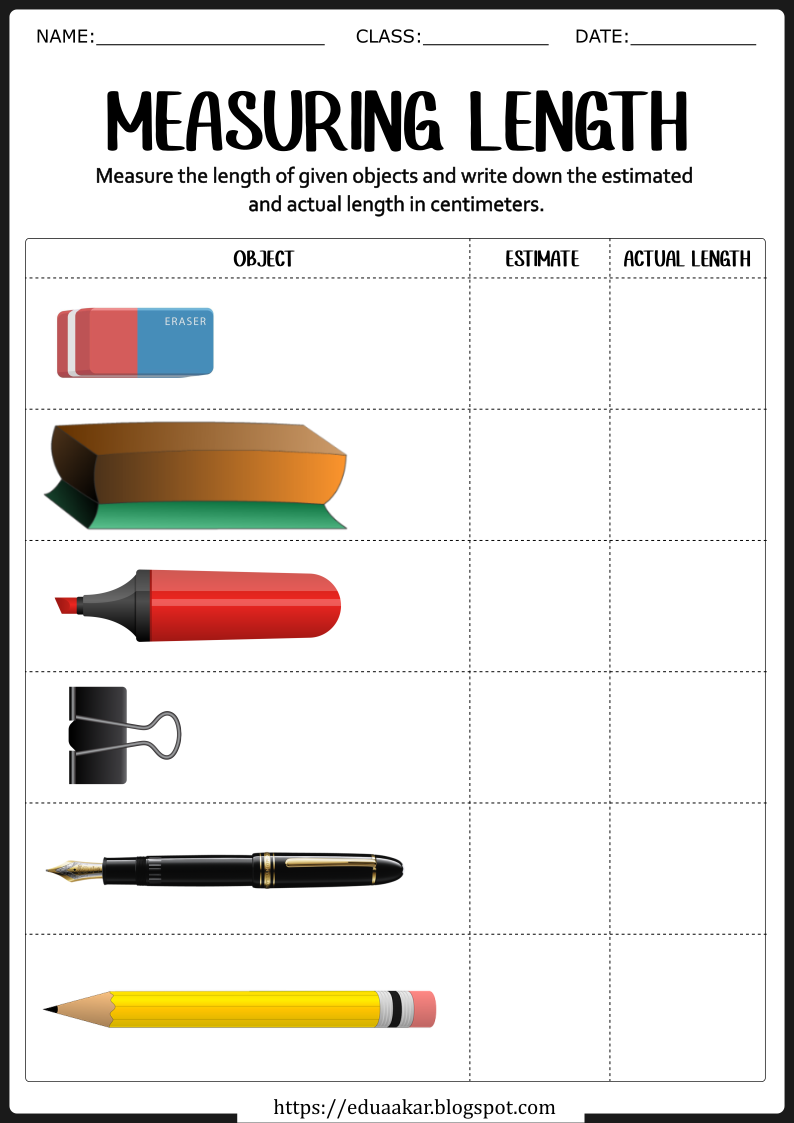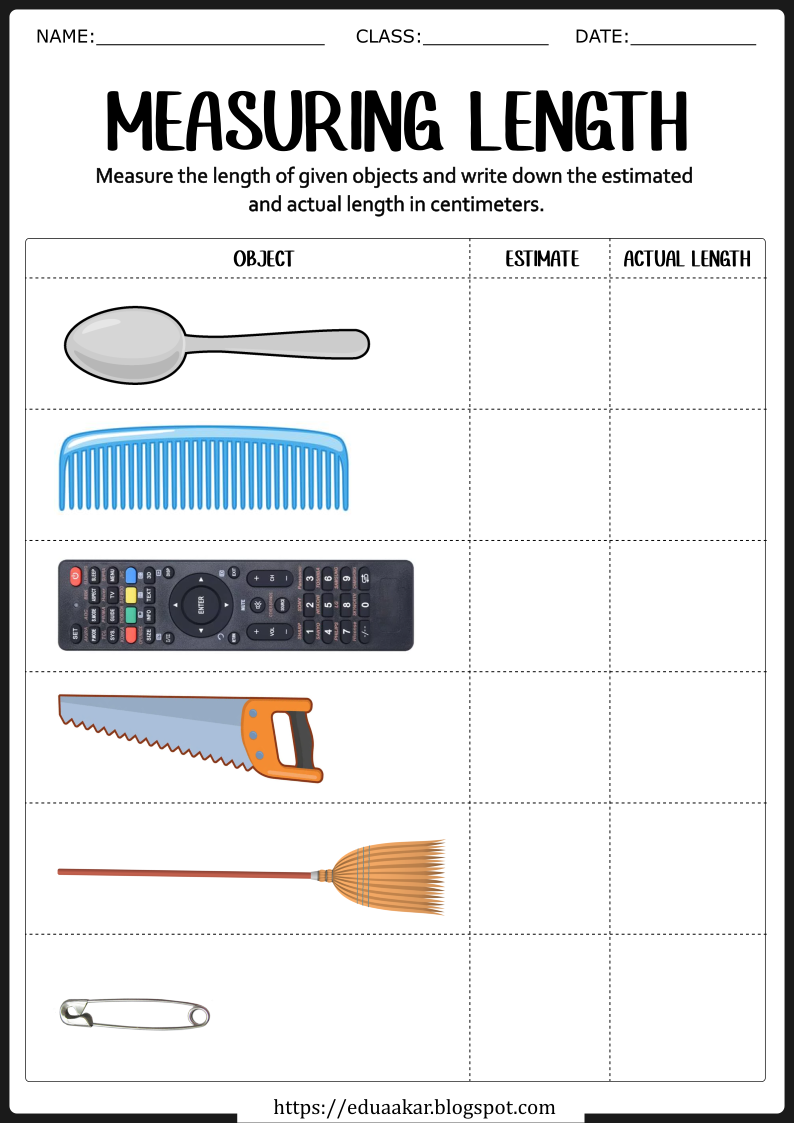The other day, my little one lined up her toy animals and asked, “Who’s the tallest?” That question sparked a fun afternoon of measuring everything—from dolls to juice boxes. It reminded me how natural and curious kids are when it comes to size, height, and length.
That’s exactly why I put together these measurement worksheets for preschoolers and nursery kids. They make it easy for children to explore basic math concepts in a fun, hands-on way—right from home or the classroom.
What Will Your Child Learn?
These worksheets introduce measurement in the simplest, most relatable way possible. Here’s what your child will explore:
- Height and Length – understanding how tall or long something is
- Comparison Words – taller, shorter, longer, smaller
- Counting Units – using blocks as a way to measure
- Using a Ruler – simple practice with scale graphics
- Estimating – guessing before measuring for a fun challenge
- It’s not about getting it all perfect—it’s about getting curious.
Take a Look at the Worksheets
Here comes the fun part! Below, you'll find worksheets that help kids understand measurement through visuals and hands-on thinking.
1. Count the Blocks
These worksheets use colored blocks stacked next to everyday objects.
Your child will:
- Count how many blocks tall an object is
- Compare two objects: “Which one is taller?”
- Circle or color the taller or shorter one
2. Measure with a Scale
- Use the scale to count how long or tall the object is
- Learn how numbers on a ruler tell us about size
- Practice holding a real ruler and measuring similar items around them
3. Estimate and Measure
These worksheets ask kids to first guess the length of an object, then measure it to see if they were close.
Your child will:
- Build early estimation skills
- Record both their guess and the actual length in separate columns
- Reflect on the difference between what they thought and what they saw
Why These Worksheets Work So Well
Over the past few weeks, I’ve used these with my preschool group—and the results have been great. Here’s why they love it:
- The activities feel like puzzles, not tests
- They get to explore using their eyes, hands, and minds
- Estimating feels like a game: “How many blocks do you think this one needs?”
- They're learning math without even realizing it
Tips to Use These at Home or in Class
Here’s how you can get the most out of these worksheets:
- Talk it out – Let your child describe what they see
- Use real items – After the worksheet, measure a crayon or snack
- Keep it flexible – There’s no one “right” answer; let them explore
- Add your own twist – Have them guess the length of their shoe or book
I always keep a small ruler nearby during activity time. It helps make the learning real—and it’s fun watching them run around measuring their world.
Let Kids Lead the Way
Kids learn best when they’re having fun and following their curiosity. With just a few simple worksheets and a bit of play, you’ll be surprised how quickly they start understanding measurement.
Try these out and let me know what your child thinks. And if they start measuring the dog’s tail or the length of the hallway—just smile. That’s how learning begins.

